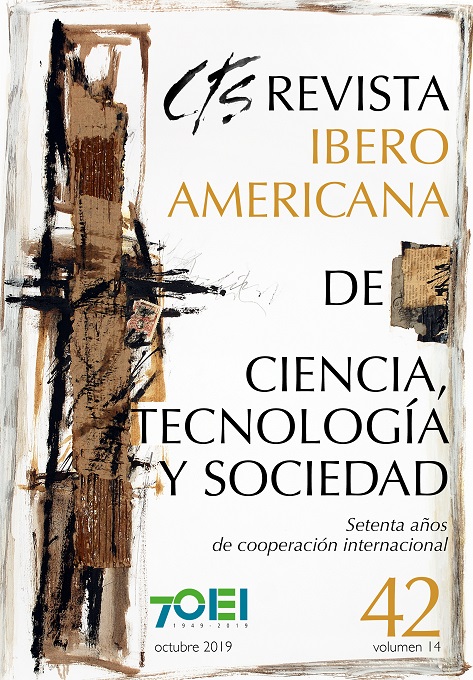International Cooperation, a Strategy to Guarantee the Quality and Continuity of Education Policy
Keywords:
international cooperation, political education, assessment, continuityAbstract
Education policies set the main guidelines that frame the education system of a nation. However, the time required to achieve its consolidation is not equivalent to that of a political cycle. If a reform begins at the start of an administration, at its end the implementation of the reform will only be in its initial stages and the results will not show its effect. For a policy to be successful, it is necessary to seek its permanence in time and firmly establish it. Even though the transition between an outgoing and incoming administration is key to the continuity of any policy, it is difficult to achieve reconciliation due to the conflict of interests and political alignments. The presence of an impartial entity that acts as an intermediary becomes necessary, so that the actions to follow can be jointly decided upon. This entity cannot, and must not, be a part of the government’s structure. Therefore, international cooperation represents a highly valuable strategy to guarantee the quality and continuity of projects that comprise the public education policy, without regard to social and political changes.Downloads
References
ANDREAS, S. (2018): Making Education Reform Happen. How To Build a 21 st Century School System, París, OECD Publishing.
AUSTRIAN DEVELOPMENT COOPERATION (2009): Guidelines for Project and Programme Evaluations, Viena.
AZIZ DOS SANTOS, C. (2018): "Evolución e implementación de las políticas", Líderes Educativos, Centro de Liderazgo para la Mejora Escolar, Chile.
BANCO MUNDIAL (2014): Social Gains in the balance. A fiscal Policy Challenge for Latin America & Caribbean, Washington DC, International Bank for Reconstruction and Development/The World Bank.
BANCO MUNDIAL (2018): Learning to Realize Education's Promise, Washington DC.
BEECH JASON MEO, A. I. (2016): Explorando el uso de las herramientas teóricas de Stephen J. Ball en el estudio de las políticas educativas en América Latina, Arizona State University.
CAPUTO, D. E. (2013): Gobernando el futuro. Escenarios latinoamericanos hacia 2020, Buenos Aires, Fondo de Cultura Económica.
ESPINAL, R. M. (2017): "Importancia de la gestión de políticas educativas y la influencia que tienen los organismo internacionales (OCDE, Banco Mundial, UNESCO y PREAL) en las reformas de los sistemas educativos". Disponible en: http://www.eumed.net/rev/atlante/2017/04/politicas.html.
ESPINOZA, O. (2009): Reflexiones sobre los conceptos de “política”, políticas públicas y política educacional, Arizona, Education Policy Analysis Archives.
FISCHER, F. M. (2007): Handbook of Public Policy Analysis. Theory, Politics, and Methods, Florida, CRC Press, Taylor & Francis Group.
FRANCO, J. F. (2013): Diseño de Políticas Públicas. Una guía práctica para transformar ideas en proyectos viables, México DF, Iexe Editorial.
FULLAN, M. (2011): Choosing the wrong drivers for whole system reform, Melbourne Victoria, Centre for Strategic Education.
FULLAN, M. Q. (2016): Coherence The Right Drivers in Action for Schools, Districts and Systems, California, Corwin, SAGE Company.
OECD (2018): The future of education and skills. Education 2030, París, Better Policies for Better Lives.
ORGANIZACIÓN DE ESTADOS IBEROAMERICANOS PARA LA EDUCACIÓN, LA CIENCIA Y LA CULTURA (2013): Miradas sobre la Educación en Iberámérica, Madrid.
ORGANIZACIÓN DE ESTADOS IBEROAMERICANOS PARA LA EDUCACIÓN, LA CIENCIA Y LA CULTURA (2018): Estudio sobre la inclusión de las TIC en los centros educativos de aulas Fundación Telefónica, Madrid, Instituto de Evaluación (IESME) de la OEI.
PADILLA, F. C. (2019): Cambios en el Proceso Educativo, Funds Society. Disponible en: https://www.fundssociety.com/es/opinion/elementos-para-la-nueva-reforma-educativa.
PULIDO, O. O. (2017): "Política pública y política educativa: una reflexión sobre el contexto", Educación y Ciudad, nº 33.
REIMERS, F. M. (2019): Cartas a un nuevo ministro de educación, Universidad de Harvard.
RIVAS, A. (2015): América Latina despues de PISA. Lecciones aprendidas de la educación en siete países (2000 - 2015), Buenos Aires, Funadación CIPPEC, Instituto Natura.
UNESCO (2016): Education Policies Recommendations in Latin America Based on TERCE, París.
Downloads
Published
How to Cite
Issue
Section
License
All CTS's issues and academic articles are under a CC-BY license.
Since 2007, CTS has provided open and free access to all its contents, including the complete archive of its quarterly edition and the different products presented in its electronic platform. This decision is based on the belief that offering free access to published materials helps to build a greater and better exchange of knowledge.
In turn, for the quarterly edition, CTS allows institutional and thematic repositories, as well as personal web pages, to self-archive articles in their post-print or editorial version, immediately after the publication of the final version of each issue and under the condition that a link to the original source will be incorporated into the self-archive.











